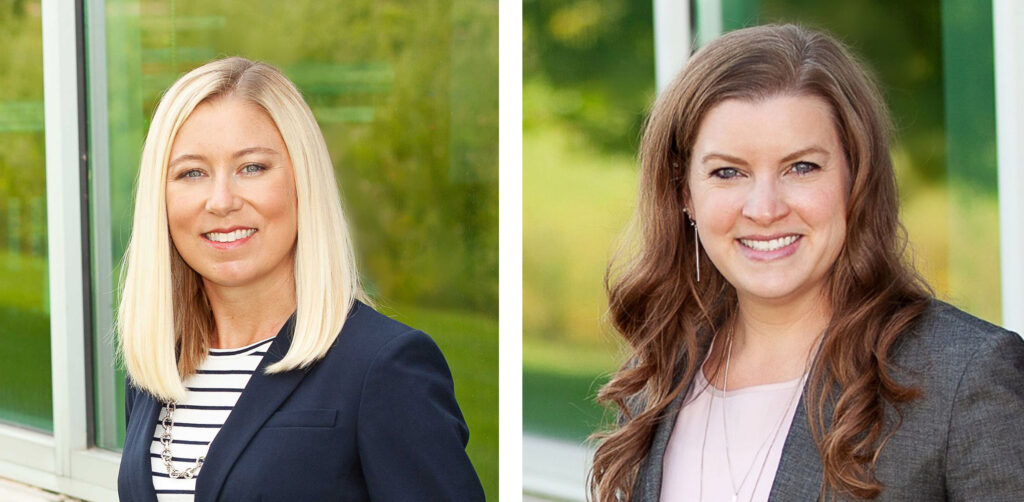By Ashlee Vieregger, senior lead adviser, Foster Group and Brittany Heard, lead adviser, Foster Group

Editor’s note: This is the first of a four-part guest commentary series from Foster Group that aims to provide insight into navigating your financial health, from early career to retirement.
Earning your first paycheck is an undeniably exciting time. But do you know what to do with your pay? With three key steps, you can build good financial habits early.
Spend, save, give
Start by allocating your take-home pay into three different buckets: spend, save and give.
1. Spend – It’s important to have a good understanding of how much money it takes to run your household each month, including both fixed costs and variable costs. Fixed costs are expenses that are consistent, such as housing, utilities, insurance, car payments, student loan/debt payments, subscriptions and day care costs. Variable costs may change from month to month; for example, your food, entertainment, clothing, personal care, travel, gifts and other items that aren’t fixed costs.
Take a look at your anticipated monthly expenses. If the total of the fixed and variable costs is higher than your monthly income, you’ll need to either reduce your costs or find additional sources of income to meet the excess. It may involve a combination of both to help you feel financially confident.
2. Save – If you have leftover income after your fixed and variable costs are satisfied, this money can be allocated to your “save” bucket. Open a savings account that is separate from your day-to-day checking account. Your target balance for this account should ideally be an amount equal to six months of your typical monthly expenses if you are single, or three months if you are married or living with a partner and your spouse/partner is employed outside of the home. Think of this account as your “rainy day” fund for infrequent or unexpected expenses, such as car or home repairs, medical expenses or replacing a home appliance.
Once you have saved either three or six months of expenses, you can consider opening an investment account and purchasing low-cost, broadly diversified index funds. Consider talking with a financial adviser when you’re ready to get started with investing.
If you have access to an employer-sponsored retirement plan like a 401(k) or 403(b), start by deferring a percentage of your gross pay before taxes. If there is an employer match, contribute at least enough to receive the full match; it’s free money!
3. Give – Consider starting with a target percentage of your take-home pay for charitable intentions. Keep this money in a separate checking account to reduce temptation to use it for daily living needs. Remember that giving back isn’t just about the money; you can also consider donating your time!
Managing expenses
While earning a consistent paycheck is nice, your early career days often introduce significant expenses to your budget. Often, one of your largest monthly expenses is housing. You might consider living with a roommate to help defray housing costs. Whether you intend to purchase a home sooner or later, start putting aside some money for a down payment as early as you can. If you can save 20% of the home purchase price as a down payment, you will avoid costly private mortgage insurance and benefit from a lower monthly mortgage payment.
Transportation is another expense to consider, especially in areas that don’t have extensive public transit systems. Keep your mind open to pre-owned vehicles that are 3-10 years old, which may be a better bargain than a brand-new car. In the long run, a $15,000 car that is newer with lower mileage could be less expensive than a $5,000 car that is older with higher mileage because the older car may require more costly maintenance and repairs.
Tackle debt or start saving?
When it comes to consumer debt, such as credit cards or “payday loans,” you should work on paying off those debts quickly. If the debt is long-term in nature with a lower interest rate, such as student loans or a home mortgage, you’ll want to balance retiring debt and building your savings – consider allocating 50-75% of excess funds to pay down debt while putting 25-50% to savings to help build your savings and investments and maybe help you better prepare for pre-retirement/retirement age.
Don’t forget about life insurance
If your employer offers free group life insurance, take it! Life insurance can be an effective income and wealth replacement tool. When you are younger, life insurance can be very inexpensive. Talk to a financial adviser or use an online calculator to determine how much life insurance you need based on your income, expenses, savings and age/phase of life.
Ask for help
If it feels like there are a lot of things to consider to get your financial house in order, it’s because there are! Don’t put your head in the sand and pretend these issues will sort themselves out. Time is your most valuable commodity, and the earlier you start, the easier it will be to build a solid foundation. Talk to a financial adviser early on. Many have low hourly fees or one-time planning fees to get you started.
Remember that you are investing in yourself and your future by doing this work early. The time to start is now!
PLEASE SEE IMPORTANT DISCLOSURE INFORMATION at www.fostergrp.com/disclosures. A copy of our written disclosure Brochure as set forth on Part 2A of Form ADV is available at www.adviserinfo.sec.gov.

